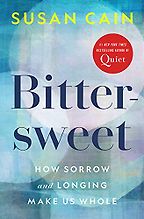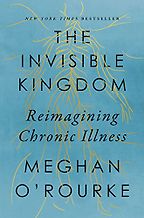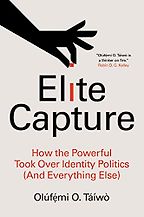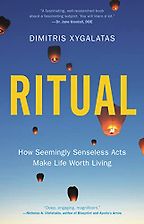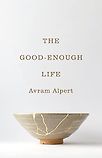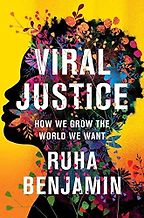Thank you for recommending five of the best self-help books of 2022—just in time to assist us in our new resolutions. Perhaps, to start with, we should define our terms: what does ‘self-help’ mean to you?
Self-help, to me, can certainly refer to its general association: books of straightforward life advice, how-to books for the soul, as it were. These books can range in sophistication from the somewhat maudlin to the rather profound. All of us can, quite frankly, use some basic life advice sometimes, but intellectuals tend to shy away from self-help. I think this is unfortunate, especially for people who work in the humanities at universities. Students come to us craving life advice—how to be a better friend, or partner, or how to deal with loss—but they more often get responses like what Harvard English professor Louis Menand said recently in The New Yorker: I’m not a great person myself, so don’t ask me. Where can these students go then but to self-help? So one of the things that interested me in putting this list together was that there are in fact many sophisticated books that can help us lead better lives by understanding ourselves and our place in the world better. That’s why a couple of the books on here are about politics. Genuine self-help means not just little life hacks you can do to feel better in degraded conditions, but knowledge about how to help yourself by transforming those conditions as well.
You said it was very difficult to put this list together, why so?
I’m not great with ‘best of’ lists. I’d rather call this ‘five good books written this year to help you live a more fulfilling life.’ Because that’s really what it is for me. I make no claim that the books I select are objectively better than others written this year. And there is undoubtedly prejudice simply in terms of what I’ve read and what themes interest me. More than that, there are just so many wonderful books being written every year, and a lot of them get lost in the deluge of quality. It’s important for me to say that that doesn’t make a lot of them any worse than any other book that rises above the flood and gains recognition. So I’m happy to recommend these five books; I just find it difficult to say they’re the best.
Let’s just say these are ‘five of the best,’ then. It removes any definitive claim. The first 2022 self-help book you’ve chosen to recommend is Ruha Benjamin’s Viral Justice: How We Grow the World We Want. What is its overarching argument? Why do you recommend it?
I should say that as part of my evasion of bestness, I just did this list in alphabetical order. No hierarchy among the five is implied! Benjamin’s argument is that while we need massive systemic change to confront the political problems of contemporary life, there is no magic lever to pull and make that change. In the face of that, we can often get paralyzed and not know how to proceed. Using a combination of anecdotes and historical evidence, she shows how small changes—participating in mutual aid groups, writing academic critiques of eugenics, changing how we view those convicted of crimes—can ‘virally’ grow into the kind of big changes that we need.
Five Books interviews are expensive to produce. If you're enjoying this interview, please support us by donating a small amount.
I recommend it because, whether you agree with every detail of her argument or not, I find that many of us are trapped in this vicious-cycle-mindset that if we don’t change the world, we’re not doing enough, and yet we can’t save the world, so we don’t do anything. While we should push ourselves to make big changes, we should also recognize that we do have power and agency to transform some things, and the stories and arguments in this book can help us see that. Overcoming the anxiety of political paralysis can be a big self-help breakthrough.
I wonder if all self-help books are, to some extent, about how small adaptations can effect big changes. Would you agree?
It’s certainly a theme in the genre. And I think it’s because basic misconceptions really can have massive cascading effects. If we correlate becoming wealthy with being happy, for example, we’ll never actually be happy. And if we think that “being happy” means never experiencing pain or sorrow, we won’t have a very good understanding of human life. Tweaking these ideas in our head, creating a better alignment between the possible and the actual, can make a big difference.
Next up you have selected the new book from Susan Cain, the author of the mega-bestseller Quiet. Can you talk us through Bittersweet: How Sorrow and Longing Make Us Whole?
Susan Cain’s books are good examples of what we were just discussing. Quiet made a simple shift—it can be good not to be an extrovert—and it was like scales fell from the eyes of millions of people who came to better embrace their varying human social levels. I wasn’t entirely sure about Bittersweet when I started reading it. I thought it might just repeat something I basically knew—life is both difficult and joyous—but I found Cain’s treatment richer than this. She defines bittersweetness as “a tendency to states of longing, poignancy, and sorrow; an acute awareness of passing time; and a curiously piercing joy at the beauty of the world.” I thought this was a very interesting way to gather up some emotions and ways of being in the world that I don’t often associate. I am not—to be perfectly honest—always convinced that her definition works, and parts of the book I don’t love, especially the personality test. People are more fluid in this realm, just as most people are ambiverts. But I like that she didn’t just give us a classic self-help book about dealing with bittersweetness, and rather offered a meaningful account of what it’s like to live with this disposition, however often one experiences it.
I remember a lot of the appeal of Quiet was that it offered a sense of vindication to natural introverts who are so used to being told to be more go-getting to get what they want. I imagine Bittersweet will come as a similar relief for those of a naturally melancholic nature. Where do you fall on that spectrum?
I suppose I am always falling again on the spectrum, and in different places! That’s why I look at the book more as an exploration of a disposition than as a personality type. And as a disposition, it’s one that I know and can find more appreciation in after reading her book, but I wouldn’t say it dominates my outlook on life. Another book that came out this year that I highly recommend is Kieran Setiya’s Life is Hard, and one point he makes in particular is helpful here: don’t always view your life as a narrative. You’re not just a character with a fixed set of personality traits and quirks. You’re plural in yourself and often a stranger to yourself.
Meghan O’Rourke’s The Invisible Kingdom: Reimagining Chronic Illness was a finalist at the National Book Awards this year. Why is it so good?
It’s a well-written, well-researched, and painfully honest story about working through complex medical conditions. I think like Quiet in a way, it also helps bring further into the mainstream something that people with chronic health conditions have been saying forever: take us and our pain seriously, but don’t you dare define our whole being by it. O’Rourke also does a wonderful job of integrating her personal narrative with criticisms of how cultures comprehend illness, as well as the unequal politics of treatment. That’s what makes it my kind of self-help book: it’s not just things you can do, but how broader perceptions and actions are linked to the transformation.
She makes an interesting point about fatigue—and similar symptoms—being interpreted by others as a moral failing. Do you think, with awareness of these conditions spreading, that could change?
That’s an interesting question. There must be a good book out there on the value of awareness for changing conditions. I know some of the book builds on arguments in Susan Sontag’s Illness as Metaphor from 1978, which has been somewhat widely read, so I would guess that like many things this is not a straight line of progress but a constant chipping away. Part of it is also that habits of assumption are deeply engrained, and, while awareness can make a difference, it may not always hit the depth of the habit. That’s why we keep working on ourselves beyond reading the book.
The next book you want to recommend is Olúfẹ́mi O. Táíwò’s Elite Capture: How the Powerful Took Over Identity Politics (And Everything Else). I think the book grew out of this interesting Boston Review essay on identity politics from 2020. Would you tell us more about it, and why you admired it?
Yes, as I understand it, the book came out of the essay. Táíwò argues that there is a confusion in how we talk about identity politics. On the one hand, in its original formulation by socialist Black feminists in the Combahee River Collective, it was about using our positions in society—our identities—to foreground important issues that could lead into coalition politics. It was a framework for respecting people’s experience and history and using that to help make large-scale collective change possible. On the other hand, it has become a kind of watered-down demand to just support anyone of a particular identity because you happen to share that identity or believe it should be supported.
Get the weekly Five Books newsletter
Táíwò gives the long history of this shift, and shows how ‘elite capture,’ or the process by which those in power are able to coopt a message to their own ends, explains how identity politics shifted its meaning. More than taking the term back, however, he wants us to rethink how we do politics in general. It should not be about symbolic gains for individuals with particular identities. But rather a general transformation—rooted in how we think about the world—toward a future of egalitarianism in both wealth and power.
Why do you think it’s useful in a self-help context?
One of the things that struck me about the Boston Review essay was that it ended with the idea of ‘consciousness raising.’ The concept returns in the book form, and gets extended analysis through discussions of education and culture. Crucial to Táíwò’s argument is that we too often forget our agency not just to make small changes within a system, but to question the system itself. We can make bigger changes by coming together, and we only do that because of an understanding of ourselves. As he writes, it is “vulnerability that connects me to most the people on this earth. It comes between me and other people not as a wall, but as a bridge.” He is saying that inward-looking self-help about personal traumas is all well and good, but it won’t solve the deeper problems that perpetually recreate trauma. Imagine the possible successful self-help here: not only working through your difficulties by bonding with others but also helping to achieve victory over what harmed you by ensuring that it never happens again.
I think that brings us to your final 2022 self-help book recommendation: the anthropologist Dimitris Xygalatas’s Ritual: How Seemingly Senseless Acts Make Life Worth Living. What an interesting idea for a book. Could you explain the thesis for our readers?
I happened across Ritual somewhat randomly, but was glad that I did. Xygalatas wants to explore, understand, and explain the curious fact that so much of what we do in life is guided by ritual, and some of these rituals are very painful. People cut themselves or starve themselves or walk up hills on their knees. And after, they describe themselves as happy. Xygalatas suggests that part of the reason is that ritual helps us become part of a community. As in Táíwò, it occurs because of a shared vulnerability, but in this case done within a purposive social context. During a fire walk ritual, for example, Xygalatas and his team even found that people’s heart rates synchronized. But what really made me think of this book in this context is how Xygalatas discusses how rituals positively inform our daily lives—whether it’s religious, or cultural like a hug or handshake, or personal like many athletes have. These rituals can help us feel grounded in an overwhelming world and reduce our anxiety. In his tests, he’s found that people who have stage fright, for example, can remarkably reduce it through creating a simple ritual. There were lots of other interesting tidbits. Overall, I found that reading this book helped me better understand various aspects of my life in ways I hadn’t expected, and I think that’s a big part of self-help.
Interview by Cal Flyn, Deputy Editor
January 3, 2023. Updated: May 15, 2024
Five Books aims to keep its book recommendations and interviews up to date. If you are the interviewee and would like to update your choice of books (or even just what you say about them) please email us at [email protected]
